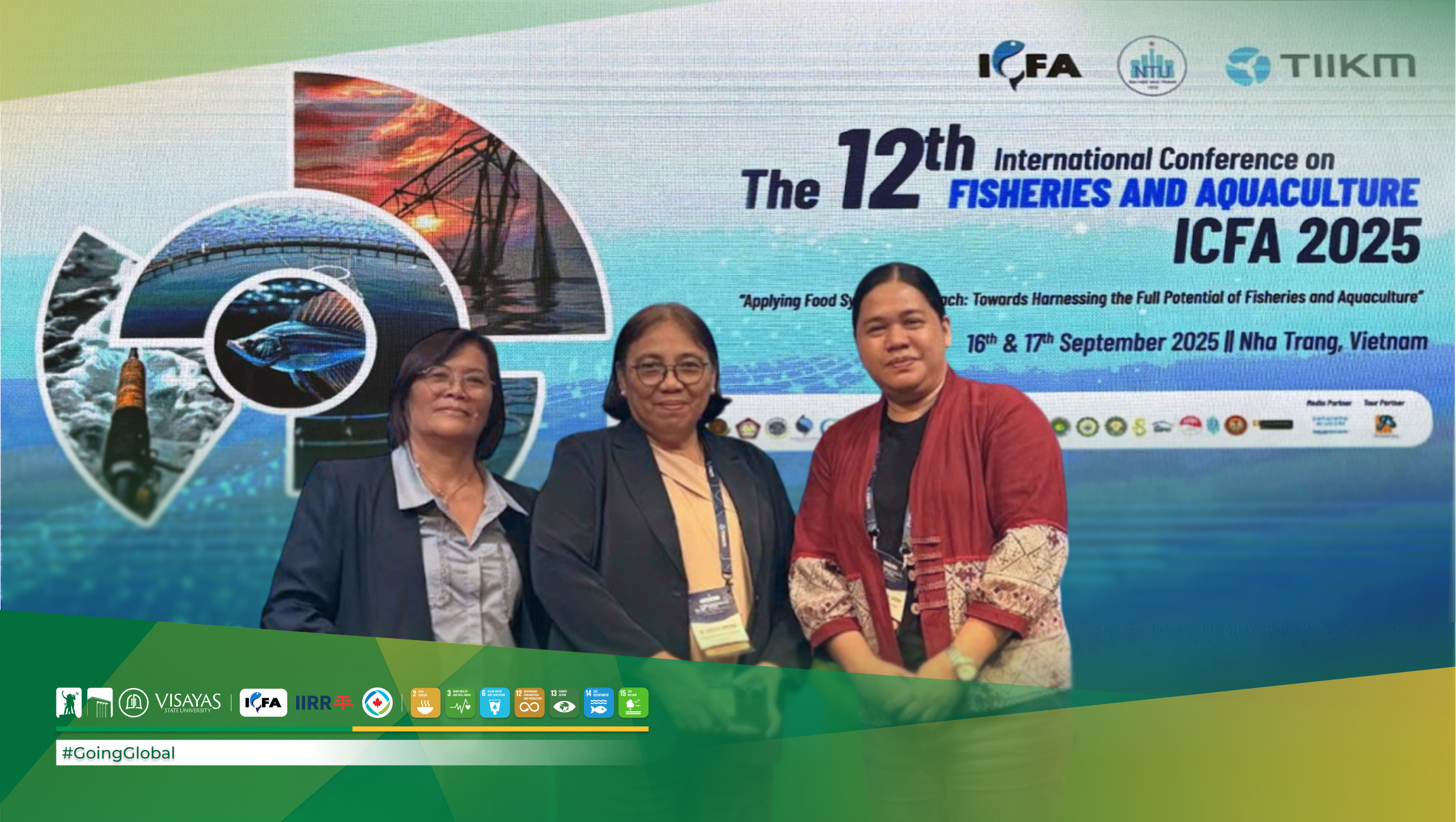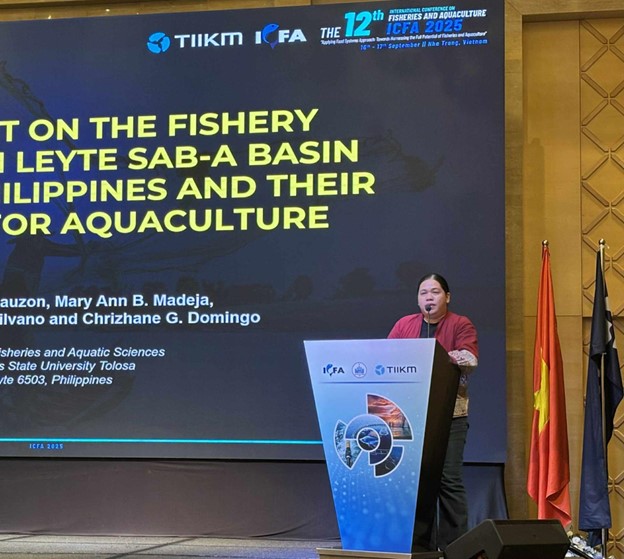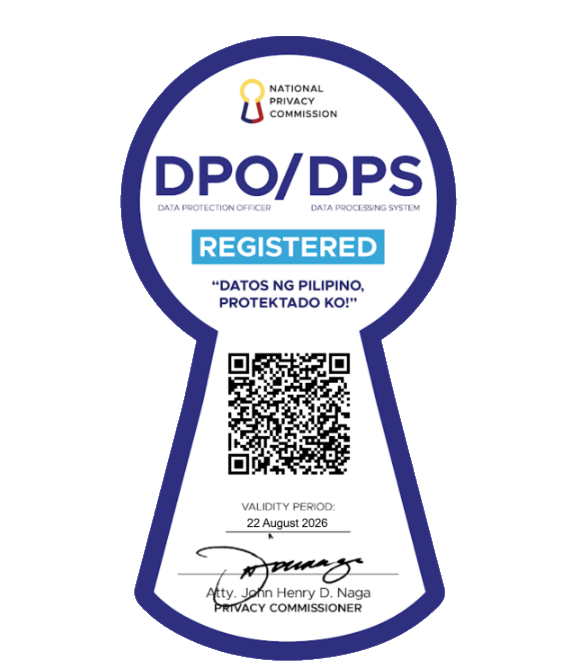#GoingGlobal: VSU Tolosa, Alangalang present aquaculture studies at ICFA 2025 in Vietnam
- Details
- Written by Claudette Meli Hoff E. Garduce
-
Published: 27 October 2025

Researchers from the Visayas State University Tolosa (VSU Tolosa) and VSU Alangalang presented their work under the Aquadapt Project during the International Conference on Fisheries and Aquaculture (ICFA) 2025, held on September 16-17, 2025, in Nha Trang, Vietnam.
ICFA 2025 is a global gathering focused on sustainable and inclusive aquatic food systems. It also gathered global experts, policymakers, and practitioners to tackle pressing challenges.
Representing VSU were VSU Tolosa Chancellor, Dr. Quenstein D. Lauzon, VSU Alangalang Chancellor, Dr. Judith B. Jomadiao, and Prof. Imelda A. Lagarde from VSU Alangalang, who shared their studies on climate-resilient aquaculture and peatland-based fisheries.

Dr. Quenstein D. Lauzon, Chancellor of VSU Tolosa, presents their research during the International Conference on Fisheries and Aquaculture (ICFA) 2025 in Vietnam.
The Aquadapt Program is led by Dr. Jomadiao while Dr. Quenstein D. Lauzon is the Project leader on nature-based aquaculture solutions.
Their research is part of the four-year Aquadapt initiative funded by the International Development Research Centre (IDRC) of Canada and the International Institute for Rural Reconstruction (IIRR), with VSU serving as a lead implementing institution in the Philippines.
Peatland and aquaculture research
At the Leyte Sab-a Basin Peatland, VSU Alangalang researchers are working on the value chain of peat-sourced fish.
Their research integrates hydrology, biodiversity, and socio-economic studies to understand how peatland ecosystems can sustain aquatic resources while supporting livelihoods.
Meanwhile, VSU Tolosa is advancing aquaculture production and post-harvest technologies.
Their activities include developing breeding and culture systems, polyculture practices, and integrated aquaculture using peat-sourced organisms.
The campus is also exploring fish processing innovations that transform local aquatic resources into nutritious food products and income streams for communities.
The Aquadapt Project is also being implemented in Cambodia and other sites in the Philippines, including Guinayangan, Quezon. It promotes nature-based aquaculture (NBAq) to help rural communities adapt to climate change while protecting vital ecosystems.
In Eastern Visayas, these efforts connect directly to peatland conservation and sustainable aquaculture practices.
At ICFA 2025, VSU researchers presented their findings alongside international experts. Discussions tackled food security, resource management, and climate resilience to align with the Food and Agriculture Organization’s Blue Transformation roadmap and the Sustainable Development Goals (SDGs).
As aquaculture and fisheries face increasing pressures from climate change and global demand, the participation of VSU Tolosa and VSU Alangalang at ICFA 2025 shows how locally grounded research from Eastern Visayas contributes to international discussion on the future of sustainable aquatic food systems.
This article is aligned with the Sustainable Development Goal (SDG) 2: Zero Hunger, SDG 3: Good Health and Well-being; SDG 6: Clean Water and Sanitation; SDG 12: Responsible Consumption and Production; SDG 13: Climate Action; SDG 14: Life Below Water, and; SDG 15: Life on Land.


